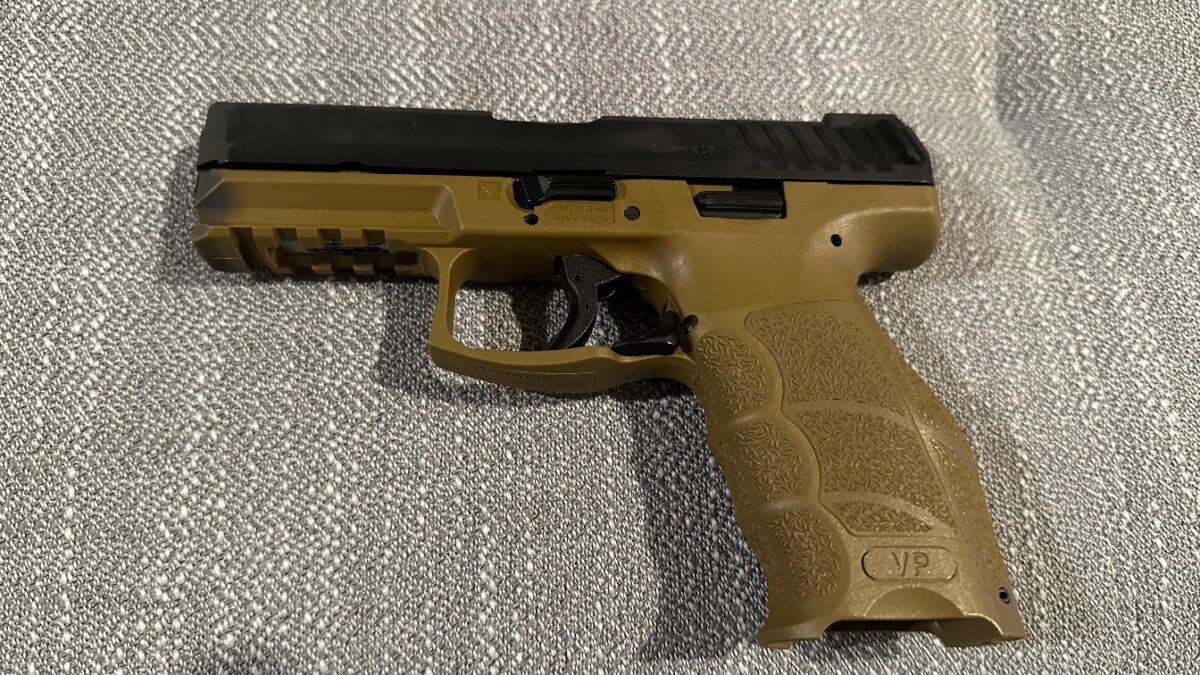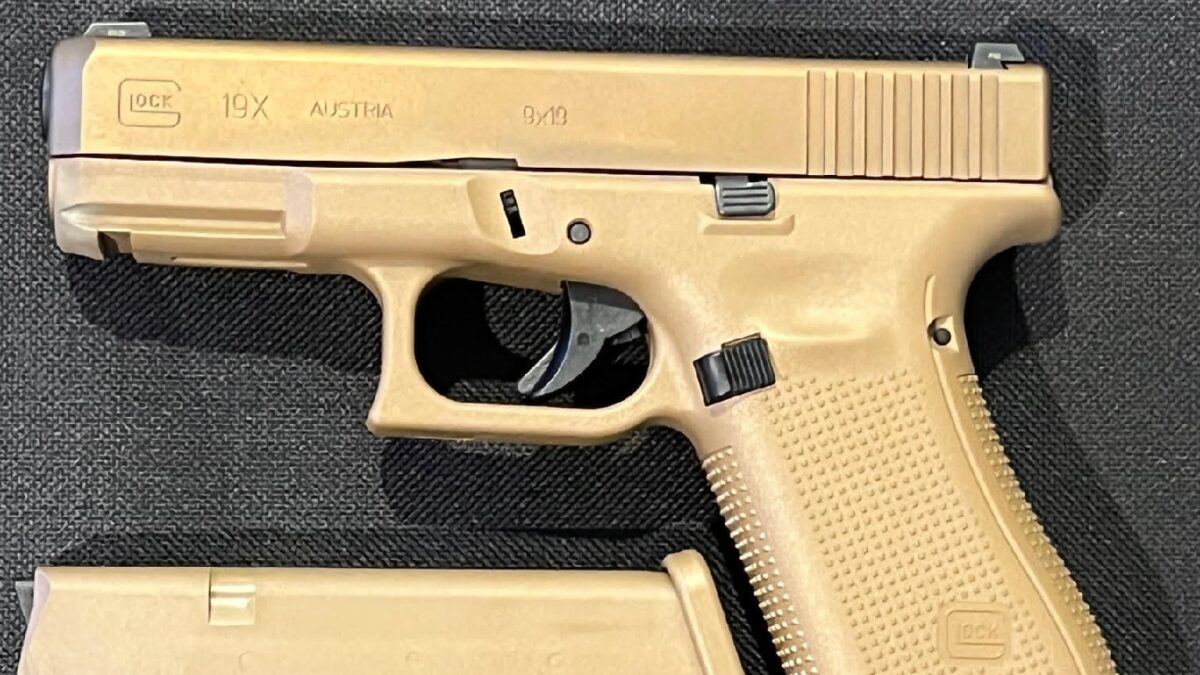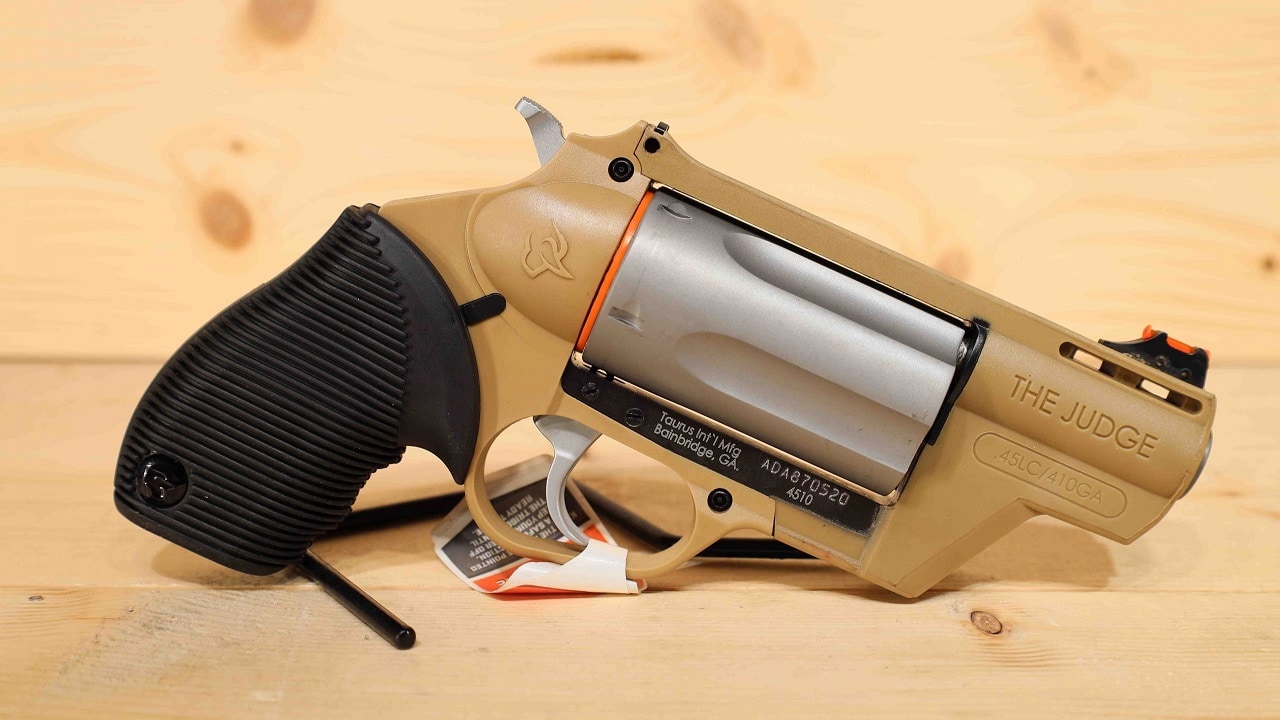Gun Sales Remain Above Pre-Pandemic Levels: Even as firearms sales – along with the weather – cooled slightly, September was another month for the record books, as gun sales have now exceeded one million units for 38 consecutive months. According to data from the FBI’s National Instant Criminal Background System (NICS) check, and compiled by researchers at Small Arms Analytics & Forecasting (SAAF), the 30-day period saw total sales at roughly 1.3 million units – a decline of 8.9 percent relative to last year.

VP9 Gun 19FortyFive Original Photo.
Gun Sales Are Slowing But Still Strong
The decrease impacted the handgun segment – at −6.4 percent – much less than it did the long-gun segment, which saw a 12.3 percent decrease in sales. Though purchases for the ninth month of the year were down from the record levels of 2020 and 2021, when the pandemic helped drive sales, it was still the third-highest September to date. This year is also on track to outpace pre-pandemic sales by a wide margin.
SAAF’s firearms unit sales estimates and forecasts are based on raw data taken from the NICS, adjusted for checks unlikely to be related to end-user firearms sales. It makes certain adjustments to the FBI’s raw data based on retailer reports and other information, and as a result, may actually underestimate the actual unit sales level by some amount. Currently, 25 states don’t require holders of a valid carry permit to undergo the redundant NICS check to purchase a firearm, while the checks are also not required for private transfers in many regions of the nation.
“The estimated sales through September 2022 amounted to about 12.7 million units, about 2.1 million units off the 2021 pace and about 4 million units less than in 2020 but still significantly higher than the 9.7 million units recorded in 2019 – all for January through September of the respective years,” said SAAF Chief Economist Jurgen Brauer
What was actually far more notable with September’s sales is where people are buying firearms. “The unit sales drop thus far this year is largest in the Midwest states and least so in the West,” added Brauer.
Credit Card Processors
It is unclear if changes from the payment processors, including Visa Inc., could have impacted sales. Last month, the company announced plans to start separately categorizing sales at gun shops, which has been seen as a major win for gun control advocates. It has been argued that it could help better track suspicious surges of gun sales that could be a prelude to a mass shooting event.
The decision by Visa, which is the world’s largest payment processor, to adopt the International Organization for Standardization’s new merchant code for gun sales has been seen by supporters of the Second Amendment as a way to unfairly flag the industry. However, Mastercard and American Express have also announced plans to move forward with plans to categorize gun shop sales. It could also put pressure on banks to decide whether they will allow sales at gun stores to happen with their issued cards.

Glock 19X. Image Credit: 19FortyFive.
A Senior Editor for 1945, Peter Suciu is a Michigan-based writer who has contributed to more than four dozen magazines, newspapers, and websites with over 3,000 published pieces over a twenty-year career in journalism. He regularly writes about military hardware, firearms history, cybersecurity, and international affairs. Peter is also a Contributing Writer for Forbes. You can follow him on Twitter: @PeterSuciu.

